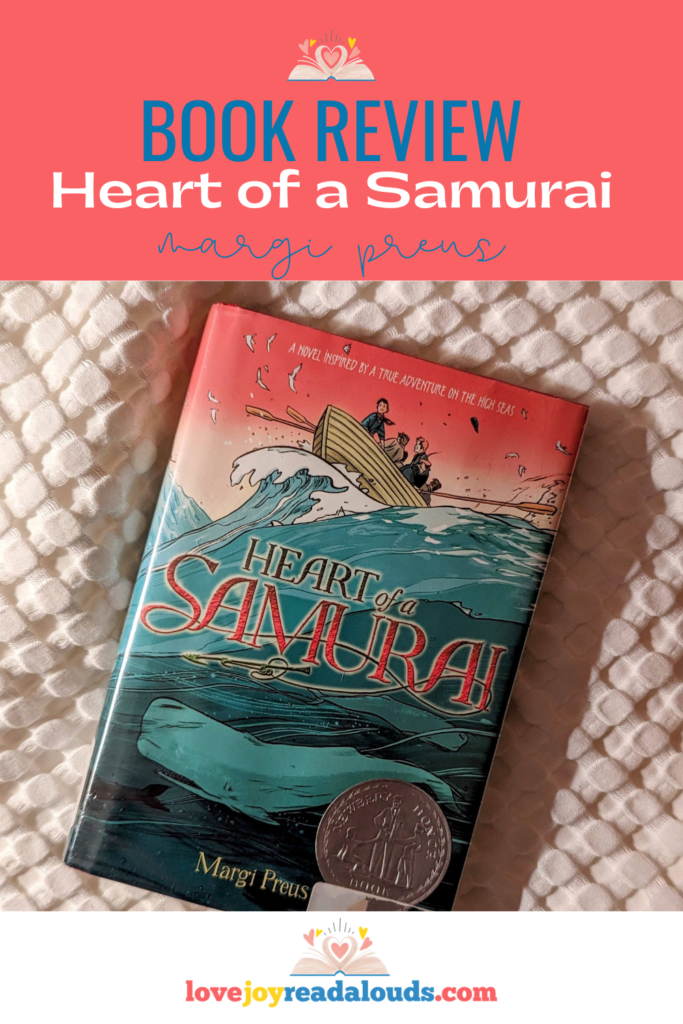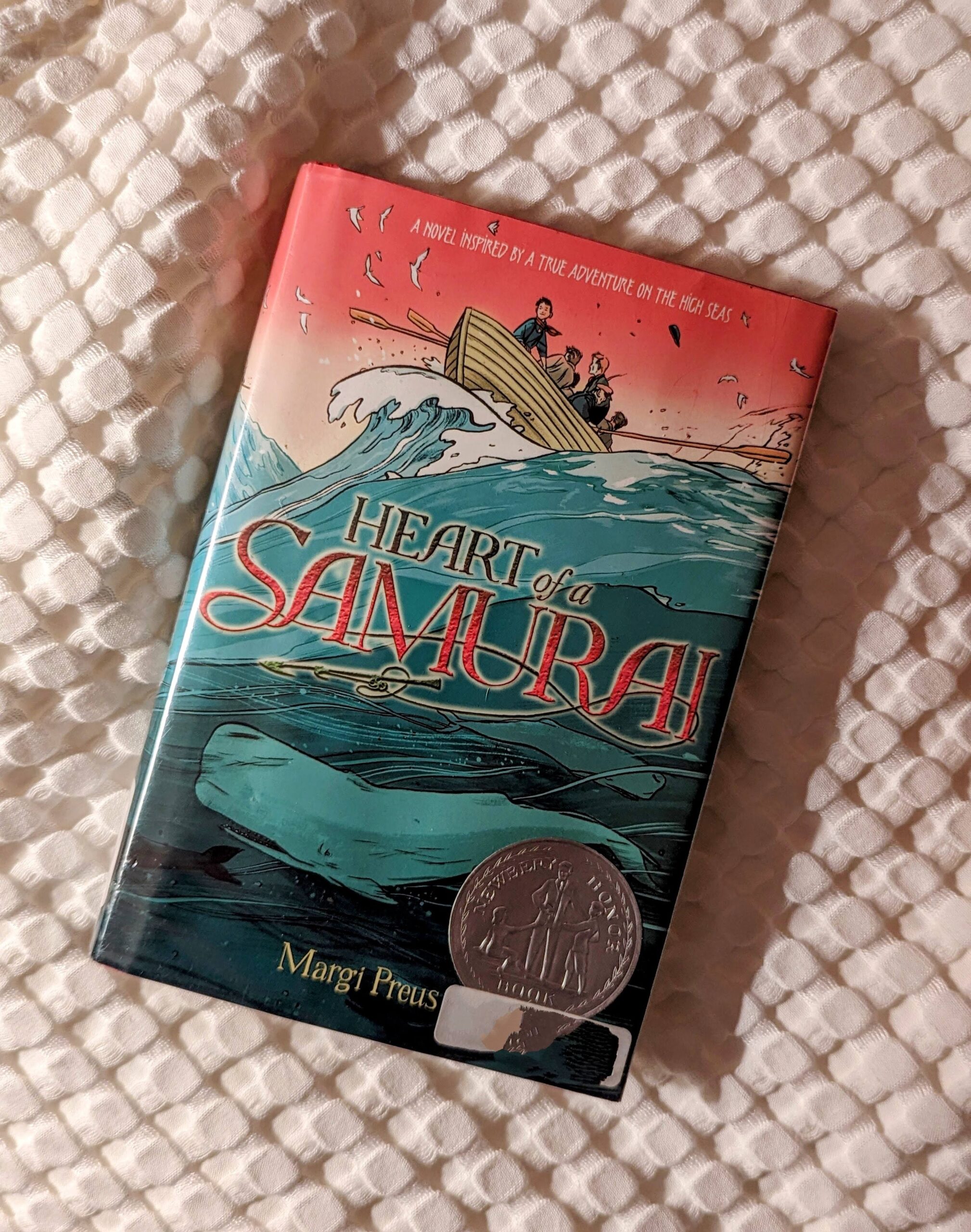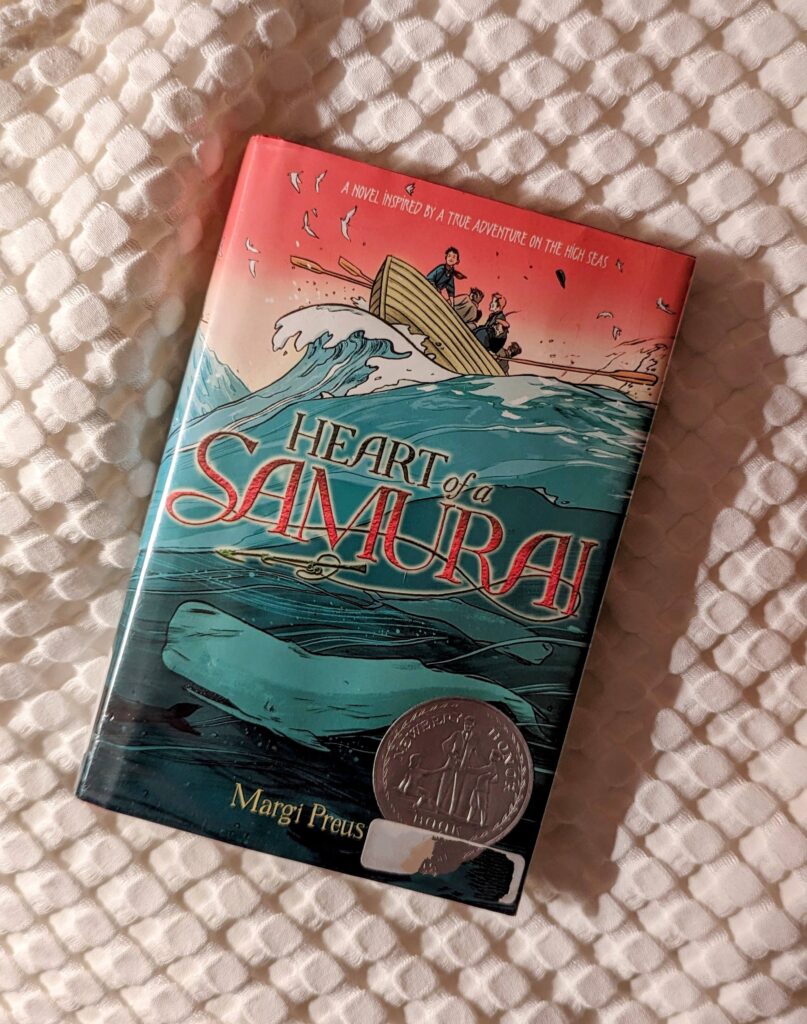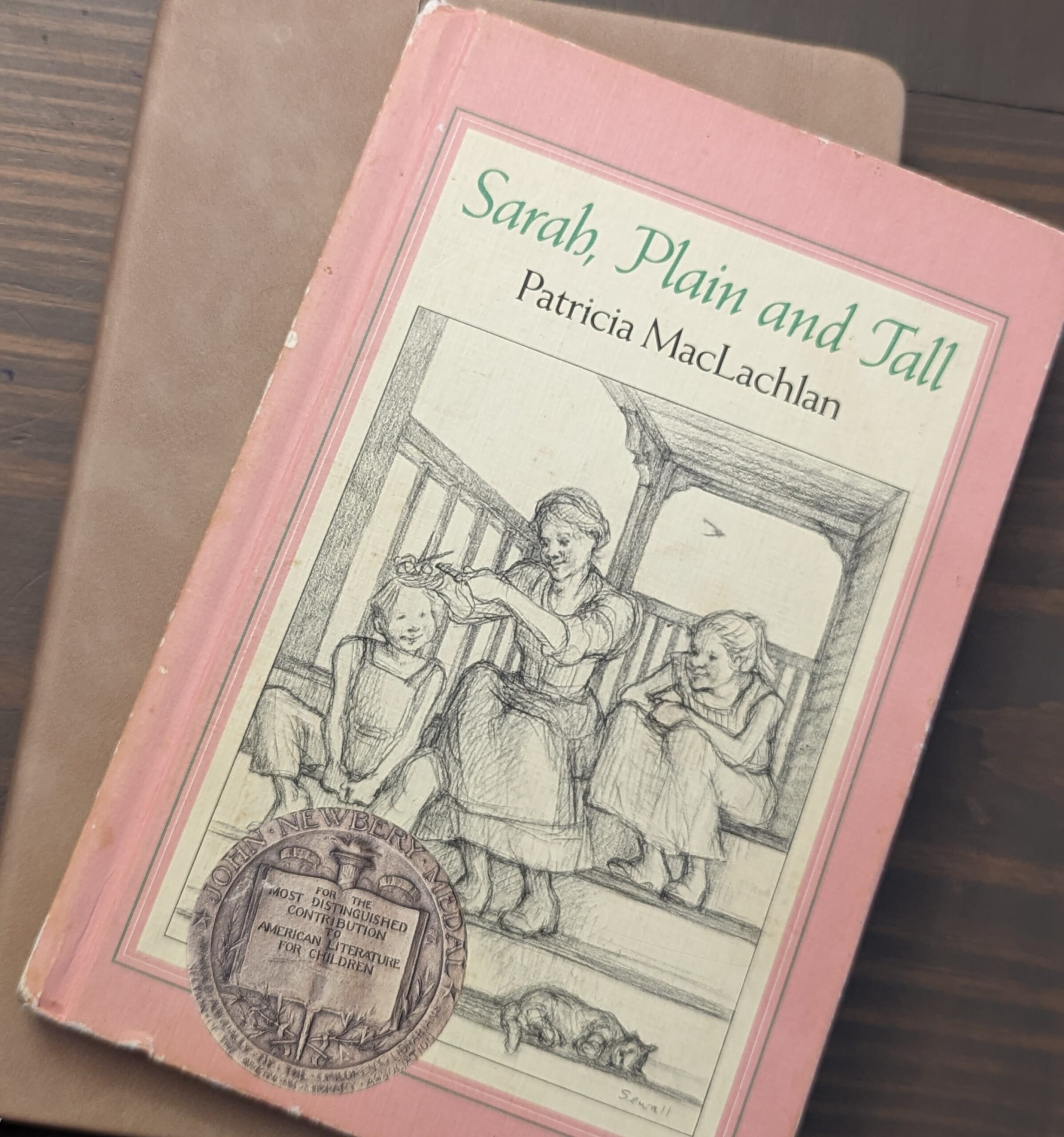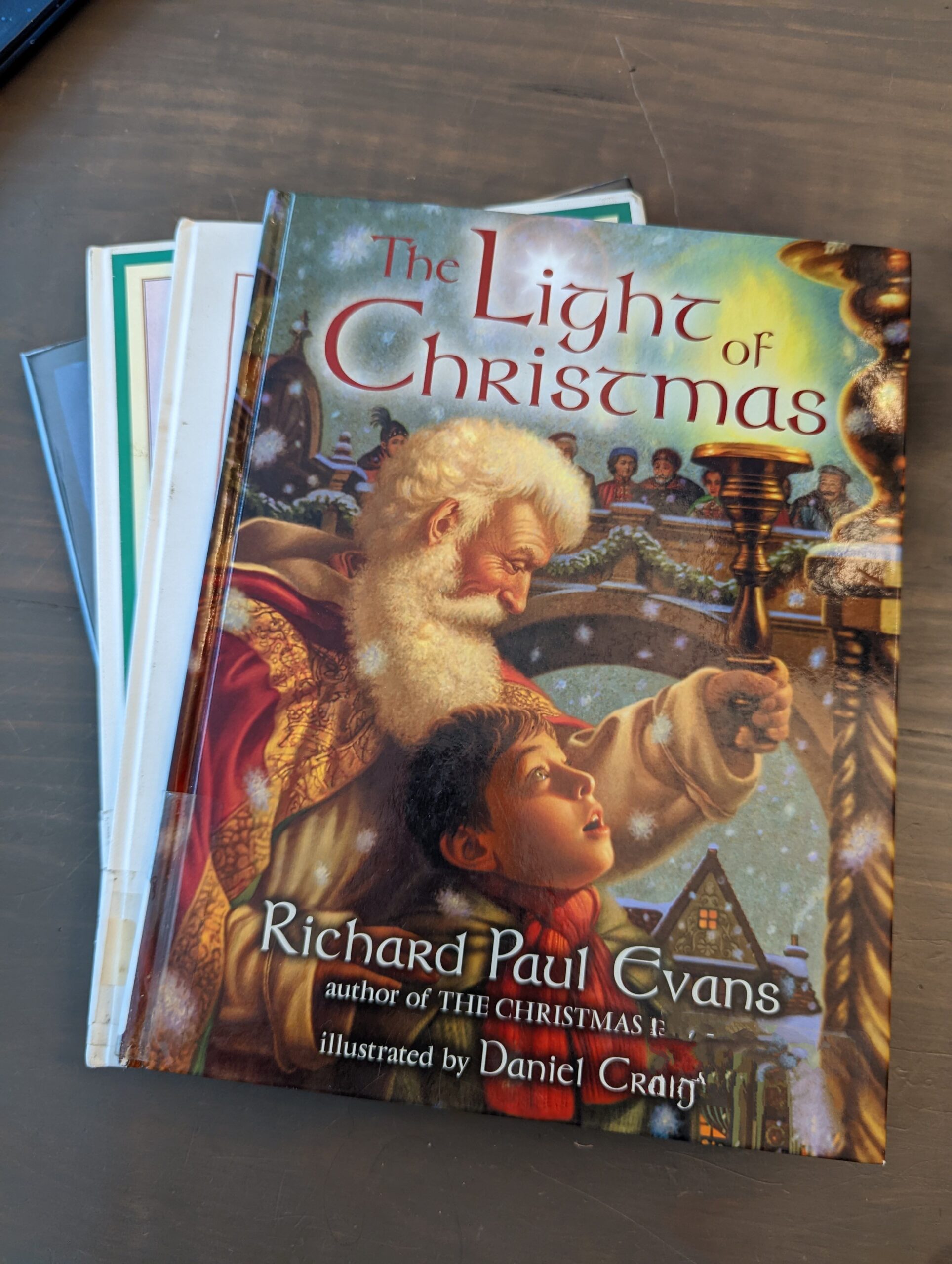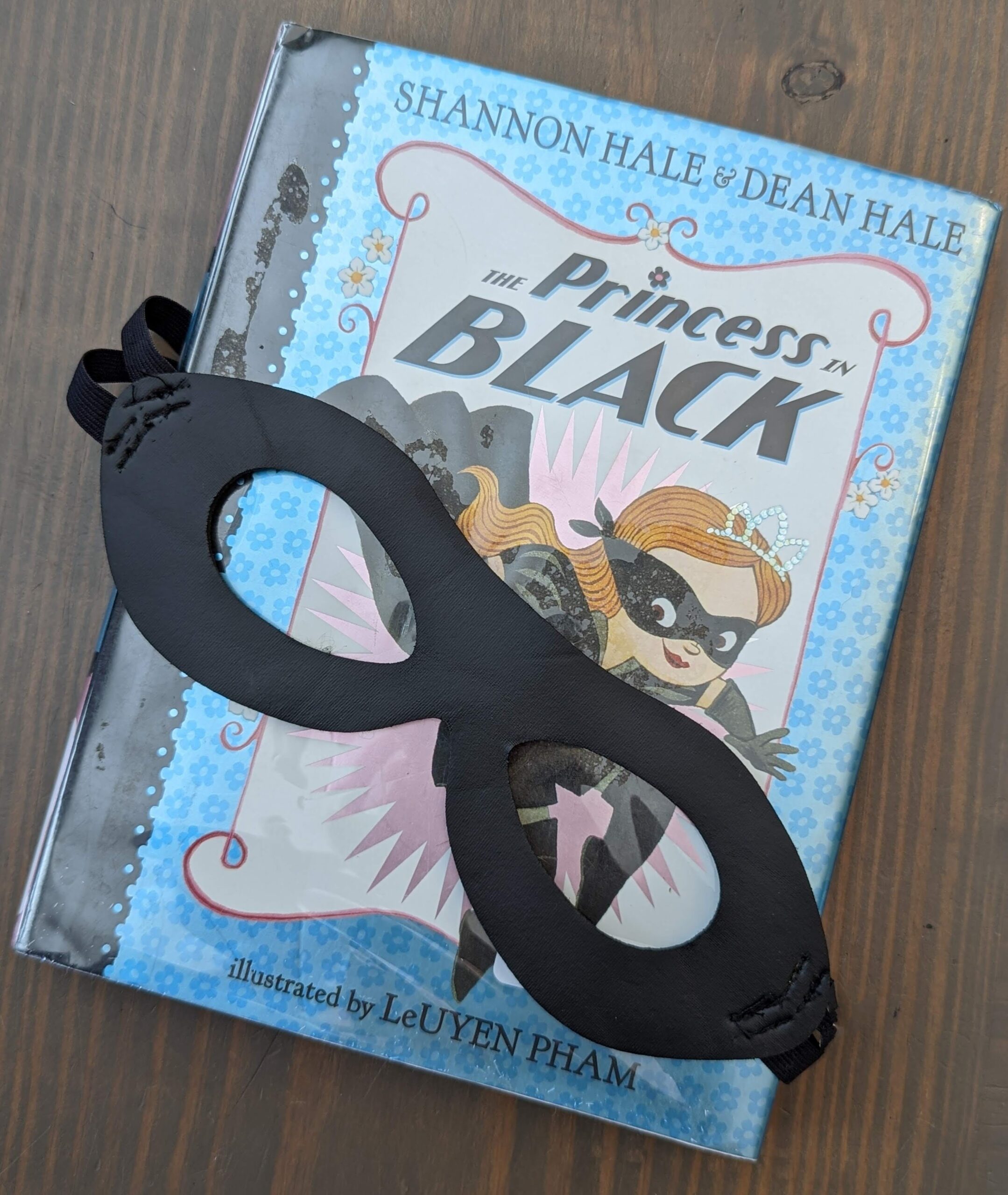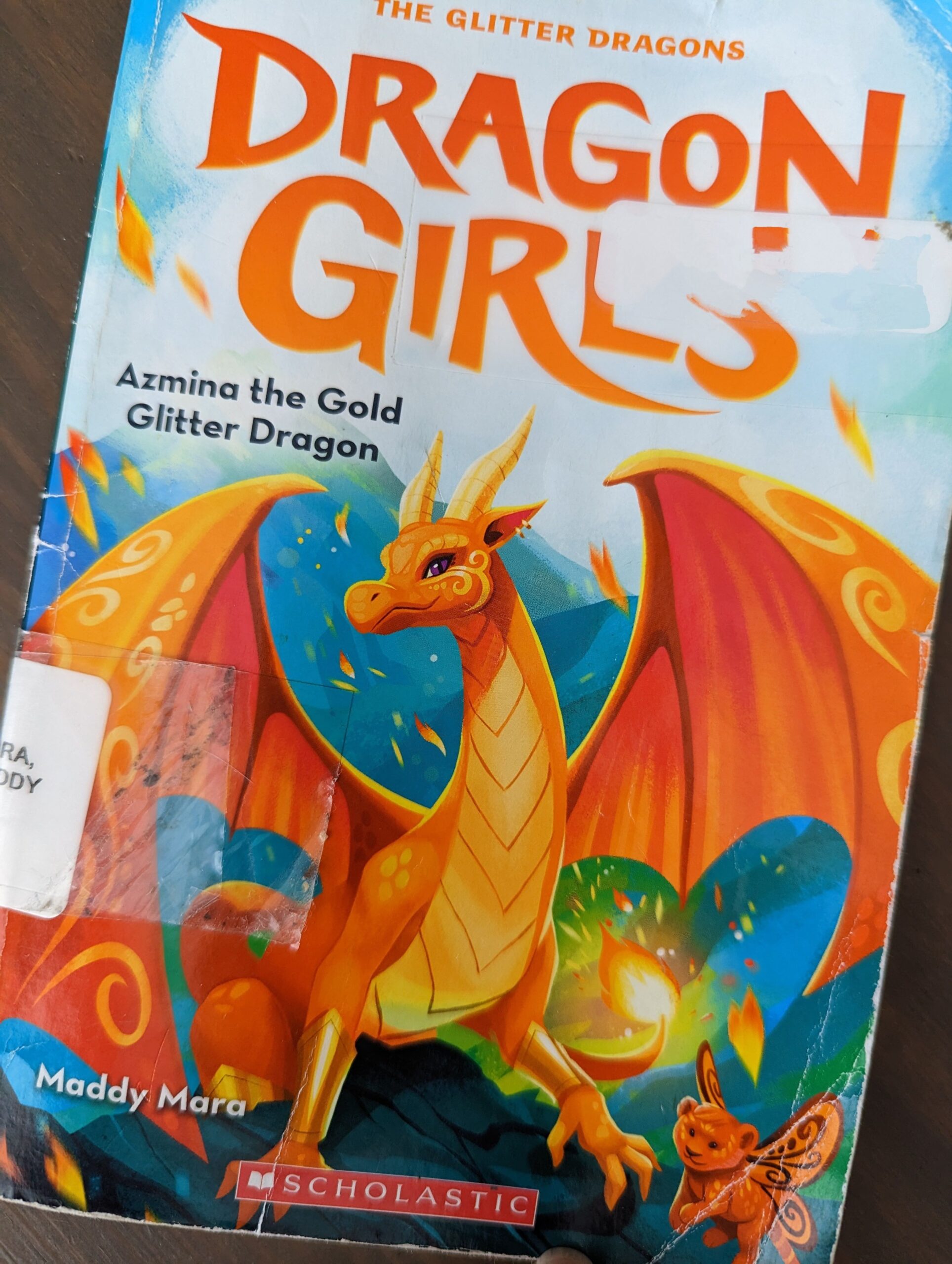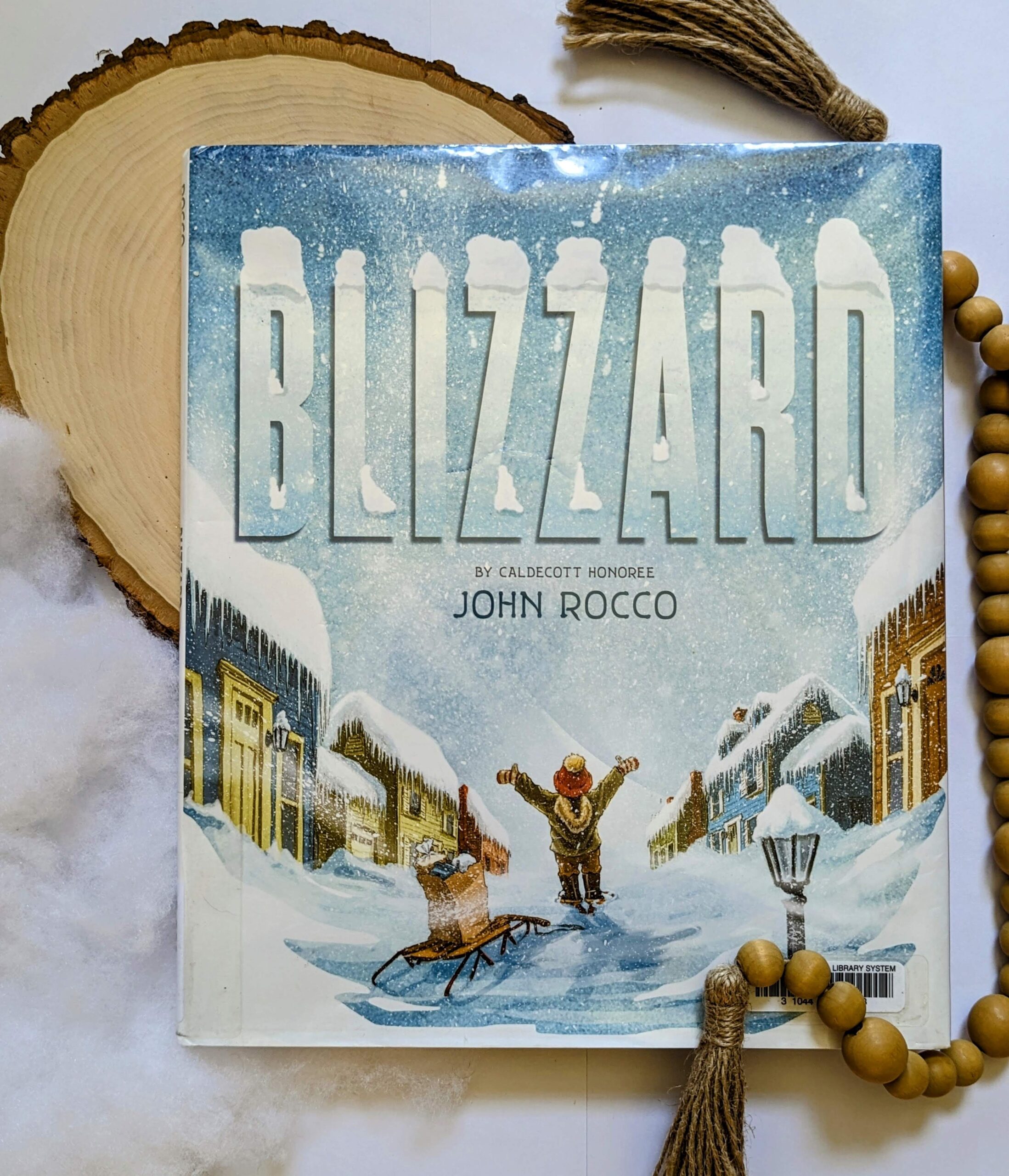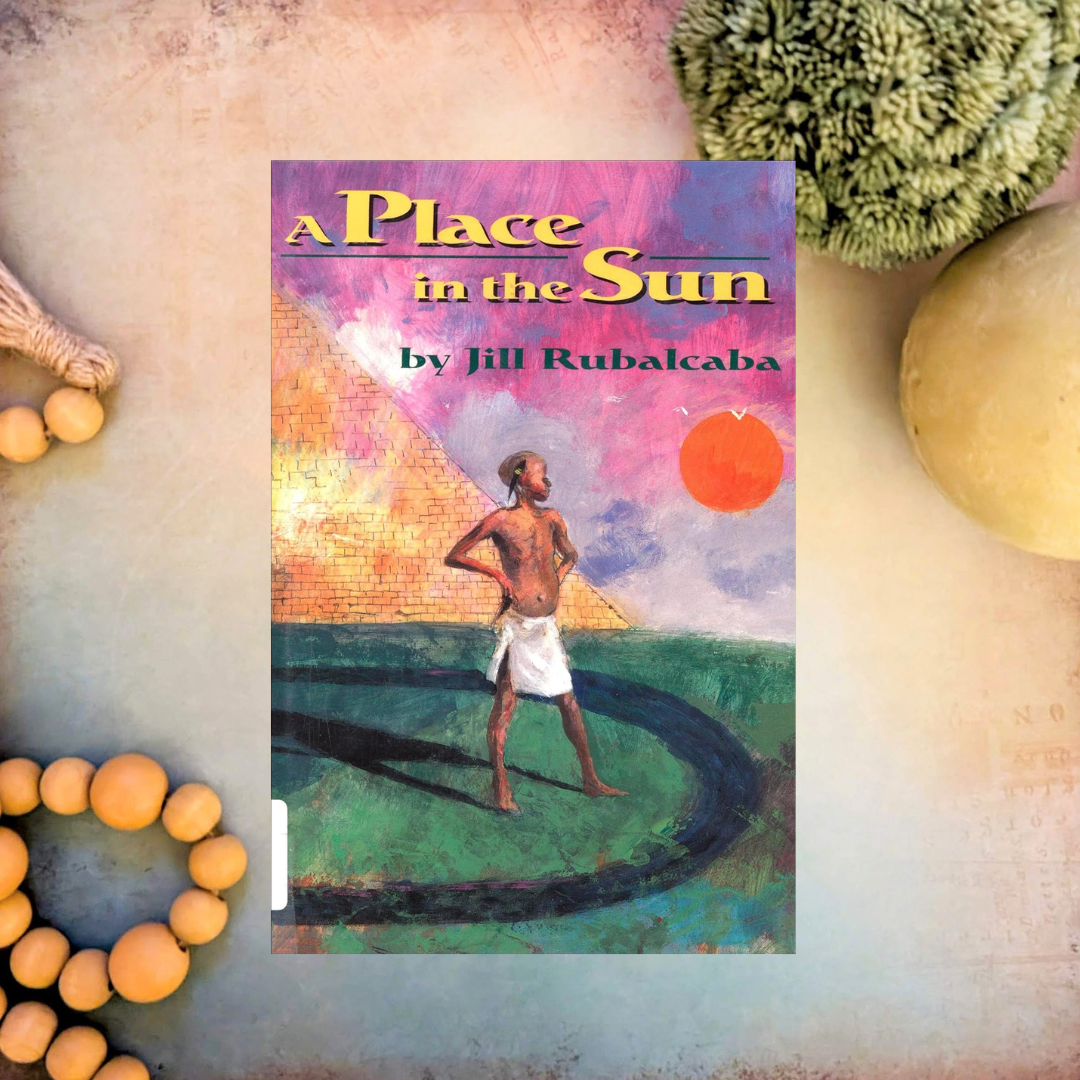Heart of a Samurai by Margi Preus
In 1841, fourteen-year-old Manjiro is forced to swim to a small, deserted island after the Japanese fishing ship he was on sank.
Manjiro and his friends are eventually saved by the blue-eyed barbarians they’ve always been warned about and soon Manjiro finds himself with the father he never had, the American Captain Whitfield.
But how will the Americans treat Manjiro when he finally arrives to his New England home with the Captain?
Heart of a Samurai is a delightfully thought-provoking historical fiction inspired by the real Manjiro, the “boy who discovered America.”
When you purchase through a link, Love Joy Read-Alouds earns a small commission – at no cost to you. Thanks for your support!
LJR’s Thoughts for Heart of a Samurai
Heart of a Samurai was a wonderful discovery from the Classical Conversations book list for Cycle 1. I had never heard the story of Manjiro (John Mung) before and it’s one of my favorite types of historical fiction. This young-adult novel brings you straight into the history of Japan’s Isolation and also the culture of pre-Civil War America.
Given the time period, it’s expected to have situations with racism and discrimination.
Overall Rating: 4.25 out of 5
Christian Morals/Values: 3 out of 5
Story: 5 out of 5
Read-Aloud Value: 4 out of 5
Discussion Value: 5 out of 5
Recommended Post: The Windeby Puzzle by Lois Lowry
Content Considerations
In our usual LJR fashion, we try to find anything that Christian families may want to know about ahead of time to address, skip, or dig deeper into. Take a look at what we found below. Our take on Discipleship Opportunities is at the bottom of the review.
- Positive Behavior: Though John Mung is discriminated against, we see situations of adults and children who all treat John with kindness.
- Negative Behavior: Characters are attacked for being different ethnicity. Kids make slanted eyes at John and people at different churches want him to sit in the back pews. A Character also discusses discrimination in a country other than America where you can only stay in the socio-economic class you were born into and the Americans are referred to as insulting names.
- Language: A character is called a “godless cannibal”, “pagan”, “little heathen”, “wretched pagan”, “dirty, spying Chinaman.” Other groups of people are called “blue-eyed barbarians.”
- Violence/Intense Scenes: The scene with the shipwreck is mild. The boys discuss how they can be killed because they break an important Japanese rule and mention “demons” and “monsters.” Descriptions of the whale huntings. These are central to the book so there are several of them. There are also mentions of sea turtles being hunted and one of them is detailed. Two characters are attacked but saved by some quick thinking (lying/deception).
- Religion/Spirituality: Characters pray to gods. John is a Buddhist and believes it’s wrong to kill creatures without prayer of gratitude and leaving offerings at shrines.
- Racism/Discrimination: See Negative Behavior and Language above.
- Romance/Sexuality: A teenage boy has a crush on a young girl. A man gets married.
- Substance Usage: None.
Discipleship Opportunities
Often these verses can lead to misuse and being misunderstood out of context so use these as a springboard for deeper study.
- The Americans and Japanese both struggle with racism and discrimination against each other. There’s name calling and attacks that are race motivated. The Bible doesn’t mention racism specifically but has plenty to say on loving your neighbor and not showing partiality.
Genesis 1:26-27, John 3:16, Deuteronomy 10:17, Acts 10:34, Romans 2:11, James 2:4, Galatians 3:28 - That Manjiro and other Japanese are Buddhists is obvious in the book. This will also be a great place for discussion but also comparing the two religions with your older kids.
Isaiah 44:9-10, Joshua 24:15, Matthew 28:19, 1 John 2:23
PIN IT FOR LATER
